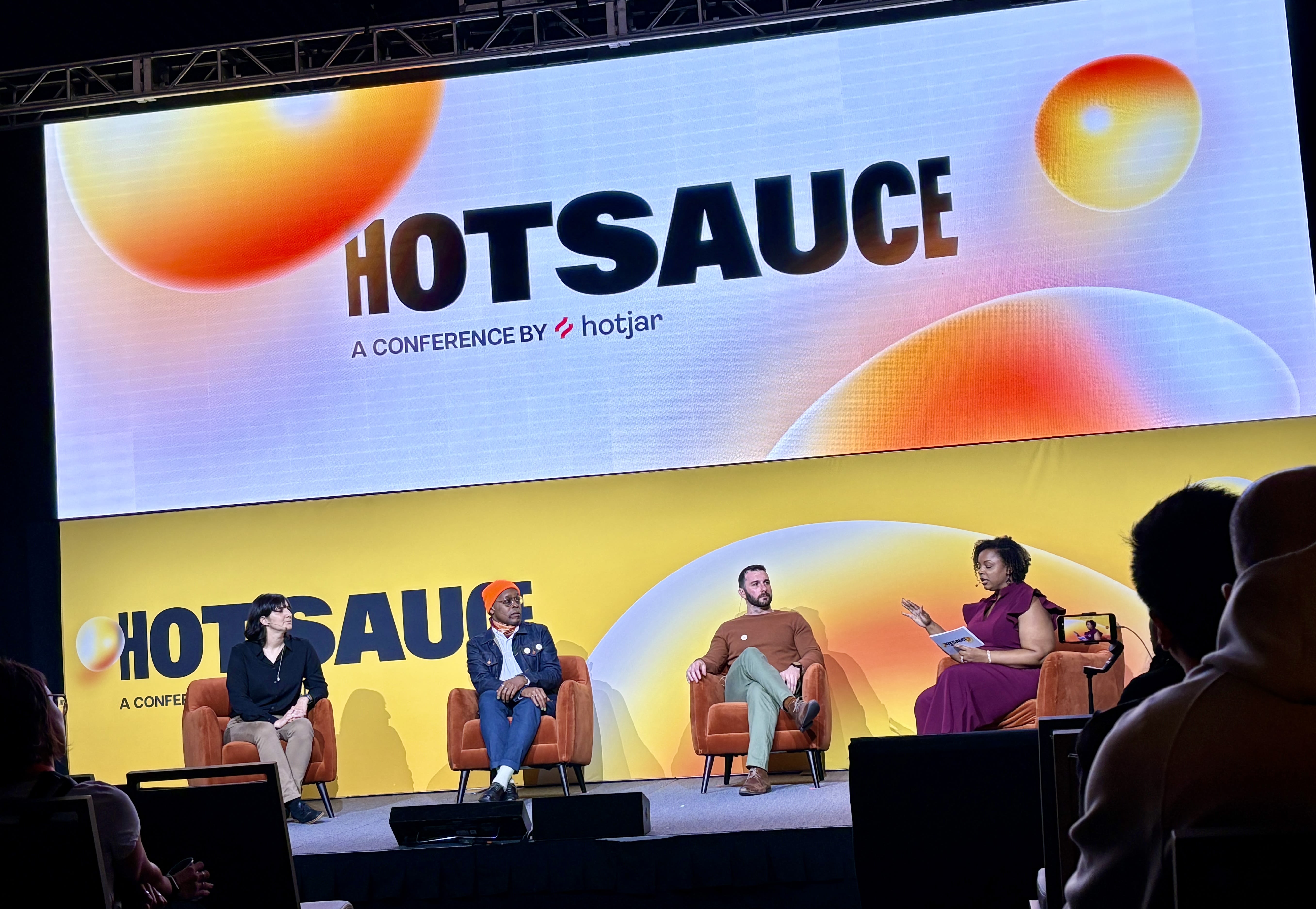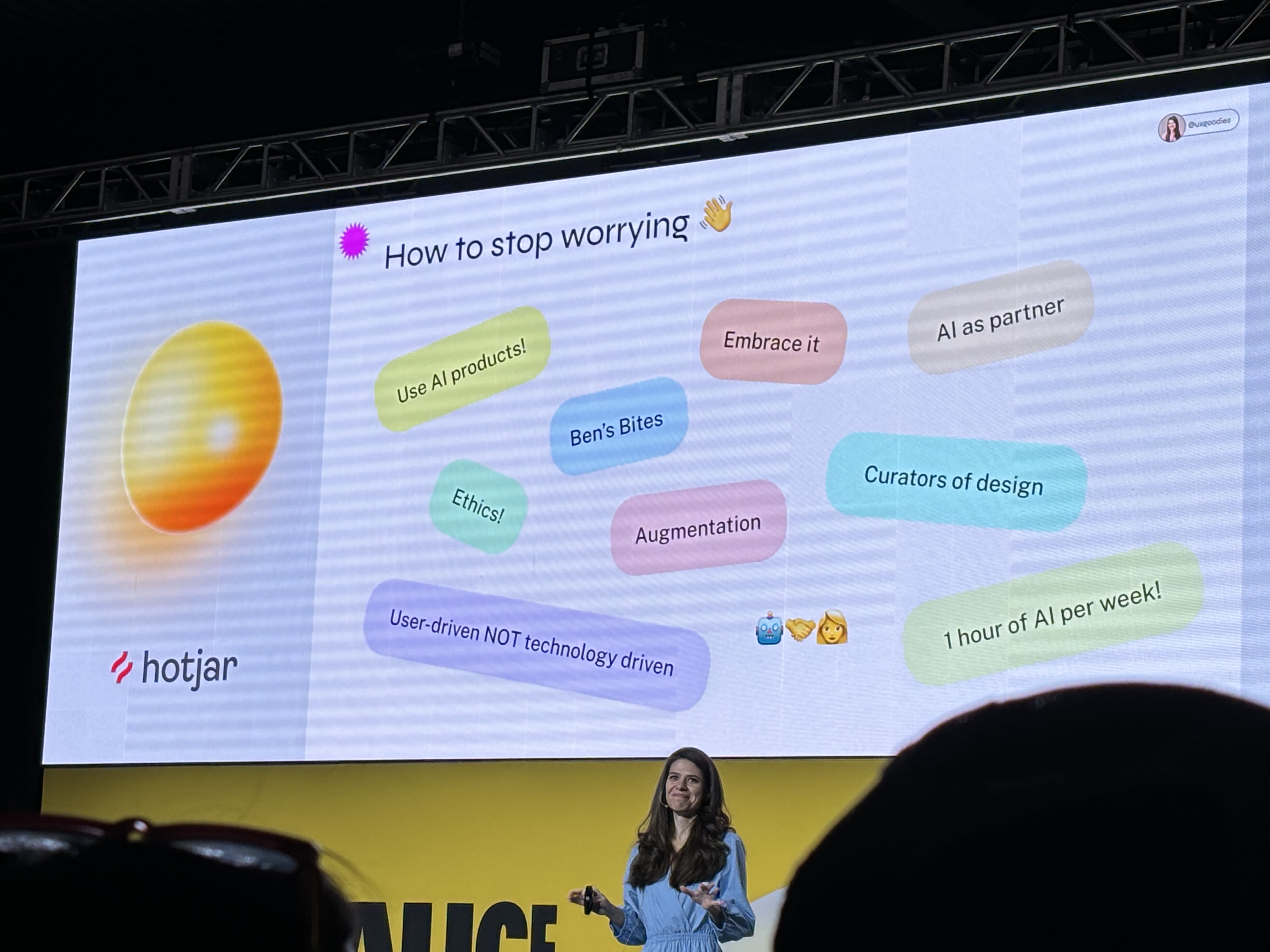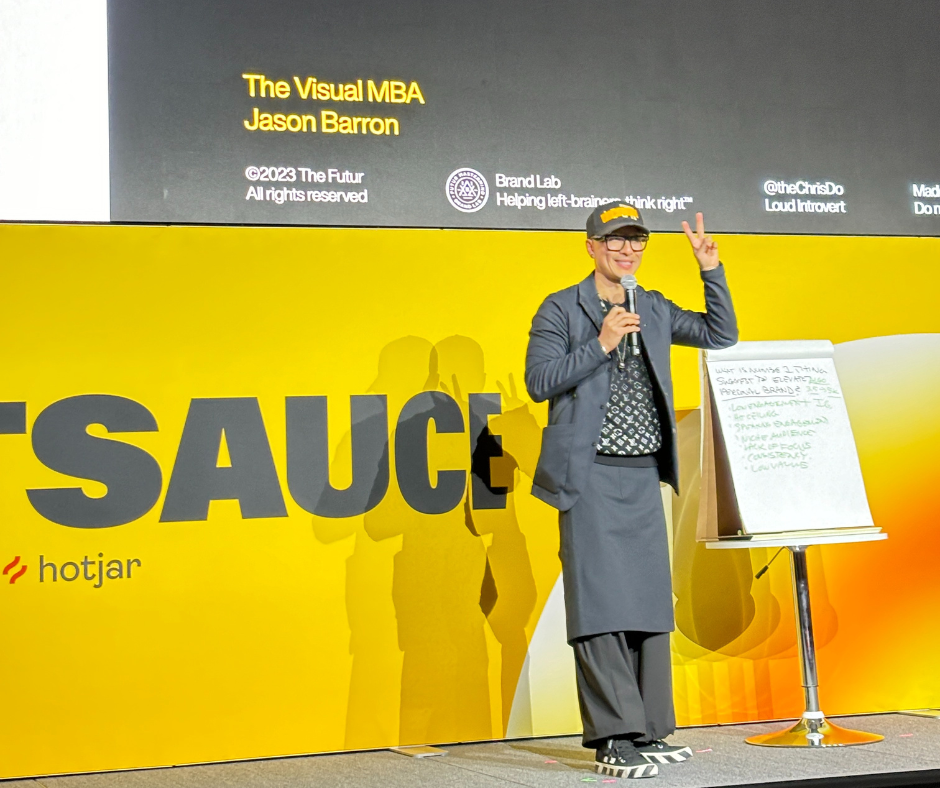HotJar’s Hotsauce Conference 2023: Full Recap
Kate Dubovikova
Kate Dubovikova
New York has witnessed the first-ever HOTSAUCE Conference from Hotjar this month! Held at Javits Center on November 2nd and 3rd, 2023, the event brought together top minds in technology, design, and product development for A FRESH TAKE ON CREATING WEBSITES AND PRODUCTS PEOPLE LOVE.
This exciting event set new standards in the industry, focusing on AI, marketing, and UI/UX design. To stay tuned for upcoming events and get notified about HOTSAUCE 2024 subscribe to the newsletter on the event page.

Event Overview
The central theme of the two-day conference revolved around product development, artificial intelligence, marketing techniques, and user experience/user interface design, providing a holistic view of the digital business world. Product experts, marketers, and website designers/developers converged to rethink the user experience after an era of disruption.
“Attending HotJar’s Hotsauce conference gave us a wider lens into the future of HotJar’s product updates, the landscape of personalization, and analytical troubleshooting,” said Marcus Ohanesian, Partner Manager at Trellis.
The Hotjar Hotsauce Conference featured an impressive lineup of keynote speakers like Keisha Mabry Heymore, Founder of Heydays; Chris Do, Founder of The Futur; Rand Fishkin, Cofounder & CEO of SparkToro; Ioana Teleanu, Lead Product Designer for AI at Miro; and many more industry experts who brought new perspectives on technology, marketing, and design.
Now, let’s dive into the key takeaways and highlights from the conference.
Navigating the Evolving Landscape
Mohannad Ali, CEO of Hotjar, spoke about the challenges of navigating the rapidly changing digital landscape. He emphasized the danger of becoming too focused on quantitative data. It can lead to a loss of sight of customer needs and overlooking user accessibility. Moreover, Ali highlighted the significant impact of personalization. For example, businesses that successfully implemented personalization initiatives, saw a 40% increase in revenue. It’s crucial to understand and cater to the unique needs of customers.
Empathy in Website Design
Keisha Mabry Haymore underscored the critical role of empathy when it comes to designing your website. Much like dates, the visitor can have a good date or a bad date with your brand. To leave a lasting impression, you need to show empathy to consumers. How to do that? Keisha suggests an approach that includes three key principles:
- engaging users through compelling storytelling
- ensuring transparency and honesty for building trust
- providing clear, intuitive navigation
These principles, she argued, transform websites into empathetic, user-centric platforms that resonate with visitors, making them more relatable and memorable.
Inclusivity & Diversity in Workspace
A panel led by Amandine Aman, Darren J. Major, Jake Tenenbaum, and moderated by Denitresse Ferrell, focused on maximizing inclusion in the workspace. They discussed how companies are integrating personalization and empathy into their customer journeys. All of the speakers highlighted the importance of inclusivity and diversity in building a more cohesive and effective work environment.
AI-Powered Experiences
Ioana Teleanu, from Miro, provided insights into the rapidly evolving world of AI. Emphasizing the necessity of ethical considerations in AI application, she highlighted the challenges and questions that artificial intelligence now faces. For example, how can we eliminate biases and ensure user safety and security? Teleanu also pointed out that AI design should be probabilistic. It should accommodate unpredictable behaviors, and must focus on building trust and transparency with users. Here are the principles for AI design suggested by Ioana:
- start with the user’s needs
- always fight bias
- promote good
All of them are essential for creating inclusive, ethical, and effective AI-powered experiences.

Audience-First Marketing
Rand Fishkin’s session focused on the urgent need for a shift in marketing strategies. He pointed out the diminishing effectiveness of traditional marketing methods due to changes like ad blocking and data privacy laws. Moreover, the current marketing attribution is messy generating false traffic analytics linked to ‘Direct’ sources.
Advocating for an audience-first approach, Fishkin suggested identifying influential channels and communities that resonate with the target audience first. Then, marketers need to craft messages that align with the audience’s values and needs. Additionally, he introduced the concept of zero-click marketing. It emphasizes the need for organic social posts without external links to maximize reach and engagement.
Content Strategy Insights
Alex Antolino, Creative Director at SubOne, emphasized the power of content, particularly on platforms like YouTube and TikTok. He used Mr. Beast’s YouTube channel as an example of how strategic content creation can lead to viral growth, reinforcing the idea that content is a vital tool in audience engagement and growth.
Power of Mind
Anh Vu-Lieberman‘s session on the influence of human psychology in marketing and business offered a range of actionable strategies. She discussed the effectiveness of offering incentives like free shipping for near-threshold purchases and the importance of constant experimentation to understand what resonates with different audiences. Vu-Lieberman also highlighted the impact of simple design changes, such as adding bold colored boxes to sales items. It can significantly improve conversion rates and revenue.
Interactive Learning and Dialogue
Chris Do, founder of The Futur, is fmaous for his humanistic approach to communication, focusing on listening and asking leading questions. His session involved minimal slides and significant audience interaction, highlighting the importance of a dialogue. Do’s methods are applicable across various contexts, from sales calls to internal team discussions, demonstrating the versatility and impact of effective communication.

Conclusion
The Hotjar Hotsauce Conference 2023 was a groundbreaking event that reshaped our understanding of digital experiences in technology, design, and product development. From the insightful discussions on empathy in website design to the innovative approaches in AI-powered experiences, and the renewed focus on audience-first marketing, the conference offered a rich tapestry of ideas and strategies. This event not only offered valuable insights but also set the stage for continued innovation and growth in the industry.
Leave a Comment